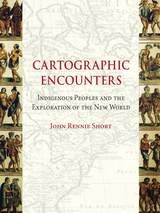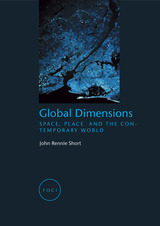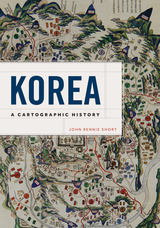
There’s no excuse for getting lost these days—satellite maps on our computers can chart our journey in detail and electronics on our car dashboards instruct us which way to turn. But there was a time when the varied landscape of North America was largely undocumented, and expeditions like that of Lewis and Clark set out to map its expanse. As John Rennie Short argues in Cartographic Encounters, that mapping of the New World was only possible due to a unique relationship between the indigenous inhabitants and the explorers.
In this vital reinterpretation of American history, Short describes how previous accounts of the mapping of the new world have largely ignored the fundamental role played by local, indigenous guides. The exchange of information that resulted from this “cartographic encounter” allowed the native Americans to draw upon their wide knowledge of the land in the hope of gaining a better position among the settlers.
This account offers a radical new understanding of Western expansion and the mapping of the land and will be essential to scholars in cartography and American history.

John Rennie Short disagrees with this interpretation, arguing that the world today actually thrives on local differences and that a global polity tends to reinforce – not repress – the power of individual nation-states. He insists that globalization is not so much replacing difference with sameness as providing opportunities for new interactions between spaces and locations, new connections between the global and the local, new social landscapes and more diversity rather than less.

Insurrection offers a profound and incisive analysis of the underlying factors that culminated in the assault on Washington, DC’s Capitol Building on that fateful day: January 6th, 2021. Going far beyond mere journalistic accounts, the book delves into structural trends within the United States, providing a broader and deeper context for comprehending the magnitude of the uprising. It explores the crisis of democracy, escalating violence, widening inequality, and the prominence of conspiratorial discourse within American politics. By examining both long-term issues as well as the tumultuous events of 2020, including the pandemic, policing challenges, and the fiercely contested presidential election, this book uncovers the catalysts behind conspiracy theories and the politics of outrage. This compelling narrative is essential reading for all those interested in the contemporary face of the United States.

READERS
Browse our collection.
PUBLISHERS
See BiblioVault's publisher services.
STUDENT SERVICES
Files for college accessibility offices.
UChicago Accessibility Resources
home | accessibility | search | about | contact us
BiblioVault ® 2001 - 2024
The University of Chicago Press









